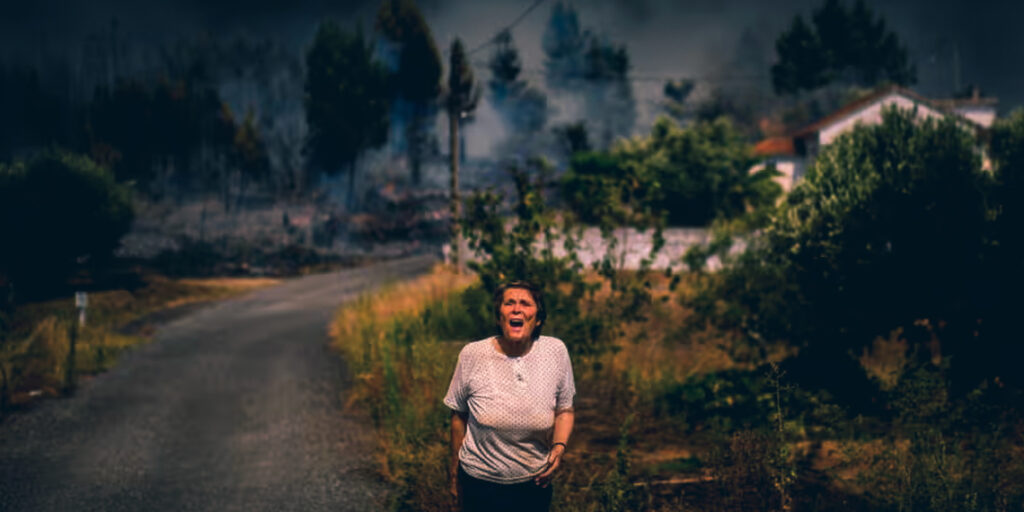A new assessment has revealed that at least 24 extreme heatwaves previously deemed impossible have devastated communities across the globe, providing stark evidence of how human-induced global heating is intensifying extreme weather. These heatwaves have claimed lives across North America, Europe, and Asia, with scientific analyses showing that without the excess heat trapped by fossil fuel emissions, such events would have had virtually zero chance of occurring.
Studies indicate that global heating has exacerbated the impacts of extreme weather, with devastating consequences. Estimates suggest that millions of people, including thousands of newborns, have died prematurely due to human-caused heat. The total tally of 550 heatwaves, floods, storms, droughts, and wildfires worsened by global heating represents just a glimpse of the full extent of climate change’s damage, as many extreme weather events remain unexamined.
The comprehensive database, compiled by Carbon Brief and shared with The Guardian, is the only large-scale assessment quantifying the role of global heating in extreme weather events. It underscores the urgent need to address the climate crisis, which is already taking lives and livelihoods worldwide.
The studies primarily examined the effects of the approximately 1.3°C of global warming experienced to date. With projections indicating a rise to 2.5°C-3.0°C, scientists are sounding the alarm over the catastrophic implications. Nations meeting at the Cop29 climate summit in Azerbaijan are urged to implement rapid and deep carbon emission cuts and provide crucial funding for communities facing inevitable climate disasters.
The science of attributing extreme weather events to global heating, known as attribution science, began more than a decade ago. Initially, researchers likened its subtle influence to “finding the fingerprints of climate change.” Today, the evidence is overwhelmingly clear, with researchers describing themselves as “eyewitnesses to a crime.”
Dr. Joyce Kimutai of Imperial College London and part of the World Weather Attribution group stressed, “The increasing role of climate change in the intensities of extreme weather events is definitely worrying. If this continues, it’s really going to be difficult for everyone, as the climate crisis spares no one.”
Kimutai highlighted the critical need for increased funding to protect people, especially vulnerable communities, from extreme weather. Current funding levels are woefully insufficient, she noted, with negotiators at Cop29 facing a key task to deliver at least a trillion dollars of climate finance.
Carbon Brief’s Robert McSweeney, who compiled the database, emphasized, “The weight of evidence shows that human-caused warming is impacting us now, not in some distant future.”
These “impossible” extreme weather events, defined by their near-zero probability of occurrence without human-induced global heating, are reshaping our climate. Fossil fuel emissions have escalated the frequency and severity of heatwaves beyond anything experienced in the last 5,000 years of human civilization. Cities, hospitals, infrastructure, and agriculture are struggling to adapt as the crisis deepens with every ton of carbon released.
Recent impossible heatwaves have struck regions from the Mediterranean to Thailand, affecting millions. The heat in North America, Europe, South Korea, and even the icy Tibetan Plateau underscores the widespread and worsening threat of global heating. Unprecedented events, like the 38°C temperature recorded in the Arctic in 2020 and marine heatwaves in the Tasman Sea, reveal the extensive impacts on our planet’s climate systems.
Attribution studies now extend beyond analyzing events themselves, illustrating the human toll of climate change. One study revealed that one in three heat-related newborn deaths could have been prevented if global heating had not occurred—resulting in approximately 10,000 lost infants annually in low- and middle-income countries from 2001-2019.
The human and economic costs of intensified hurricanes, floods, droughts, and heatwaves are staggering, with billions of dollars in damages, homes destroyed, and lives lost. The evidence underscores a simple but crucial point: global heating is not a distant threat; it is reshaping our present.
The database of 744 attribution studies, compiled by Carbon Brief, highlights how human-caused global heating has intensified three-quarters of analyzed extreme weather events. While some extreme cold events have become less likely, the data paints a dire picture of the urgent need for climate action.


